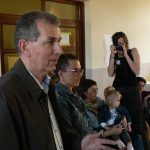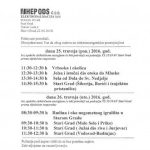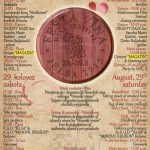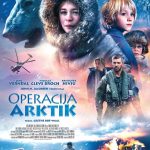I received an interesting call from the president of the Trim Association Ljubica Dijanošić from Vrboska couple of days ago. Ljubica, together with her daughter Tena are preparing a workshop to take place in Vrboska, Stari Grad and Jelsa next week.
The workshop is a part of the WONET project, approved as a part of the European Commission program Europe for Citizens and consists of five activities:
Seminar – “Women and Education”, 22 -25.10.2015, Belgrade, Serbia
Seminar – “Women, Politics and the Media”, 03-06.12.2015, Sandorligo, Italy
Seminar – “Women, Employment and Social Policy”, 25-28.02.2016, Postojna, Slovenia
Seminar – “Women and Family Law”, 14-17.04.2016, Jelsa-Hvar, Croatia
Final conference – 12-14.06.2016, Belgrade, Serbia
Women and Family Law is the them of the seminar, which will take place on Hvar island from April 14 – 17, 2016. A very important topic. Each participant could choose 4 photos and a video to represent any part of the wide area of the Women´s rights and the Family Law. It was not hard to choose, as to me, the way we bring our children to this world is one of the most important issues of our society these days – a woman´s right to choose the place and circumstances of birth of her children. The way we come to this world determines our lives and it is of a great significance to create a peaceful and safe environment for a mother to give birth to a child, to have a choice of the birth place and to get the opportunity to bond with her child rather than to be separated from him.
With a lot of different topics, it will be an interesting multi-cultural experience next week. This is what the official Wonet website says about the project:
“General aim: Contribution to strengthening and capacity building of women for political articulation of gender inequality, building gender solidarity through networking of women at local and European levels.
Case study in form of photo reportage is an instrument to increase visibility of social position of women. The exhibition of photo reportages produced during the project will be promoted as a campaign advocating for gender equality policy.
Throughout the project, partnering local communities will build capacities for social development by implementing values of gender equality and social justice.
Every seminar is attended by 6 participants from guest states and 12 host participants, totaling 30 participants per seminar. Participants may be of any age and they may apply for one of the seminars. Teams of participants from each state are obliged to prepare desk research on the seminar topic, as well as the presentation of data in duration of 20 minutes maximum.
The product of each seminar will be in form of 4 photo reportages, one from each participating state. The format of photo reportage is up to 8000 characters of text and up to 10 photographs. The project will produce 16 photo reportages in total and all of them will be exhibited in public space on occasion of opening of the final conference. After Belgrade, the exhibition will travel through partner towns. The product of the project is the brochure of 100 pages, issued in 500 copies.”










